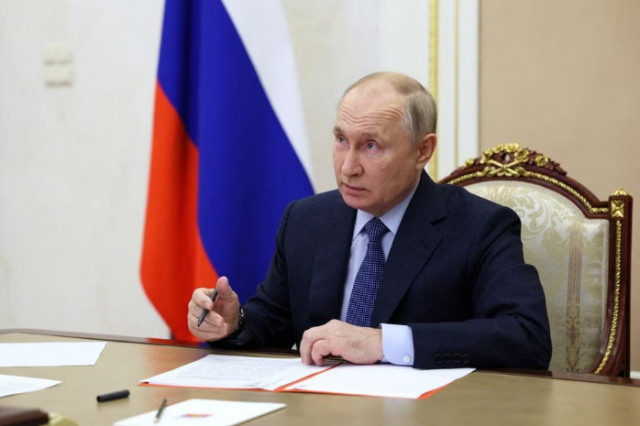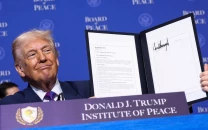Putin revokes Russia's ratification of nuclear test ban treaty
Vladimir wants Russia to adopt the same stance on the treaty as the United States

President Vladimir Putin on Thursday signed off on a law revoking Russia's ratification of the Comprehensive Nuclear Test Ban Treaty, a move he says is designed to bring Moscow into line with the United States.
Russia says that it will not resume testing unless Washington does and that its de-ratification does not change its nuclear posture or the way it shares information about its nuclear activities.
Washington had signed but never ratified the 1996 treaty and Putin had said he wanted Russia, which had signed and ratified the pact, to adopt the same stance on the treaty as the United States.
Some Western arms control experts are concerned that Russia may be inching towards a test to intimidate and evoke fear amid the Ukraine war, an idea Russian officials have played down.
Also read Russia's Shoigu accuses West of seeking to expand Ukraine war to Asia-Pacific
Putin said on Oct. 5 that he was not ready to say whether or not Russia should resume nuclear testing after calls from some Russian security experts and lawmakers to test a nuclear bomb as a warning to the West.
Such a move, if it did happen, could usher in a new era of big power nuclear testing, Western experts fear.
Putin's approval of the de-ratification law was posted on a government website which said the decision took immediate effect.
Both houses of Russia's parliament have already approved the step.
Post-Soviet Russia has never carried out a nuclear test. The Soviet Union last tested in 1990 and the United States in 1992.



















COMMENTS
Comments are moderated and generally will be posted if they are on-topic and not abusive.
For more information, please see our Comments FAQ